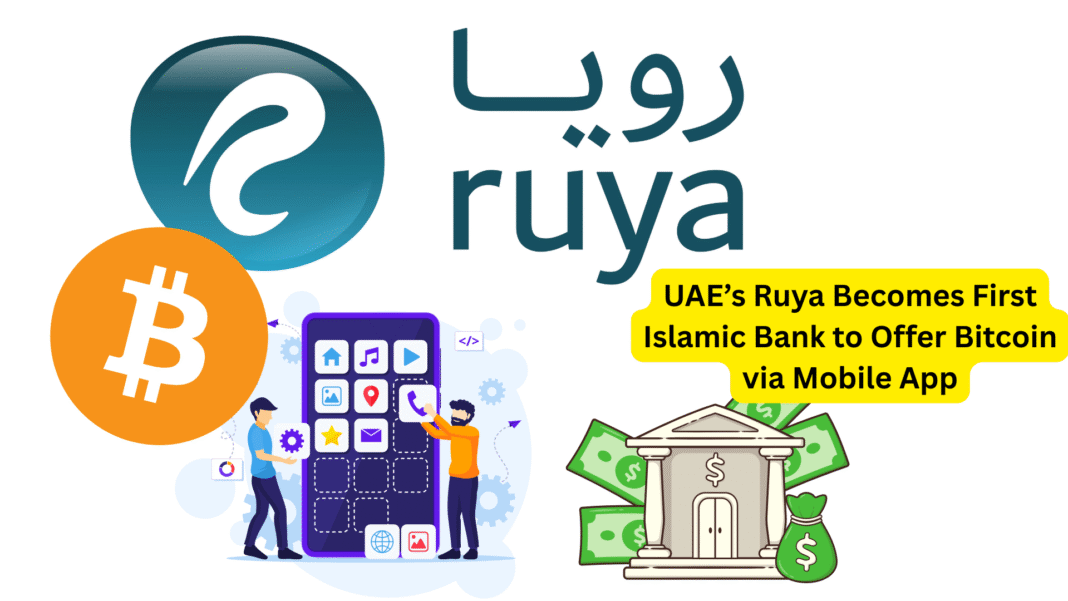The UAE’s first digital-first Islamic bank, Ruya, has made history by becoming the first Islamic bank globally to provide direct access to virtual asset investments, including Bitcoin, using its mobile app.
This is a significant step for both Islamic finance and the worldwide digital banking scene. An important step toward fusing Shariah-compliant banking with the quickly expanding realm of digital assets has been taken with this development.
Ruya’s Actions Reflect Broader Regional Interest
The statement emphasizes Ruya’s dedication to innovation while maintaining its foundation in Islamic finance. Ruya fills a long-standing gap between traditional Islamic finance and the digital economy by allowing users to invest in cryptocurrencies like Bitcoin straight from its intuitive app.
This action reflects broader regional interest in blockchain and cryptocurrency investment prospects in addition to satisfying growing demand from tech-savvy Muslim investors.
Ruya makes sure the investment services adhere to Islamic financial regulations, which forbid speculative activity and interest-based profits.
Ruya seeks to provide safe, transparent, and Shariah-compliant access to digital assets by collaborating with regulated virtual asset service providers.
Also Read: Crypto.com Partners with UAE’s Largest Islamic Bank to Introduce Sharia-Compliant Platforms
How Will The Move Benefit Ruya?
With this audacious move, Ruya is positioned to lead Islamic banking into a new era when innovation, financial inclusivity, and faith-based values converge in the digital age.
The introduction of Ruya’s cryptocurrency investment offering coincides with a boom in the virtual asset market in the United Arab Emirates, underscoring the nation’s rising prominence as a major player in digital finance.
The report claims that in the year ending June 2024, the UAE received over $30 billion in inflows of virtual assets, a startling 42% rise from the previous year.
The UAE’s aggressive regulatory strategy and investor-friendly climate for digital assets are highlighted by this growth rate, which significantly above the regional average of 11.7%.
The move is in line with the country’s overarching goal of becoming a global center for blockchain and cryptocurrency innovation, especially in the MENA area.
Ruya’s action solidifies the UAE’s position as a leader in fusing cutting-edge, Shariah-compliant banking services with financial technology.
New Move Comes as Islamic Banking Turns to Digital Assets
Islamic banks are using digital assets more and more in an effort to update their offerings and satisfy the demands of younger, tech-savvy Muslim investors.
Particularly in erratic international markets, digital assets like Bitcoin provide chances for diversification and wealth preservation. Furthermore, by avoiding interest and speculative risk, a large number of blockchain-based financial tools can be designed to conform to Shariah rules.
Islamic banks view digital assets as a means of staying competitive while providing creative, compliant financial solutions as interest in cryptocurrencies develops globally.
This change also complements larger initiatives in Islamic finance to increase financial inclusion and embrace digital transformation.
Also Read: Iran’s Senior IRGC Investigators Accused of Embezzling Over $21 Million in Crypto Assets


